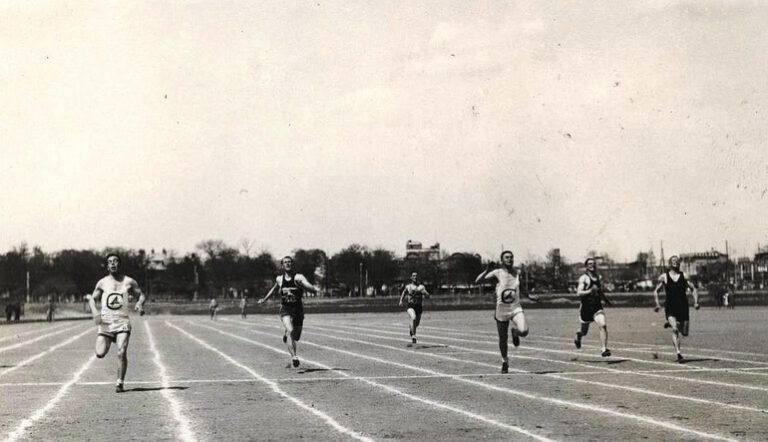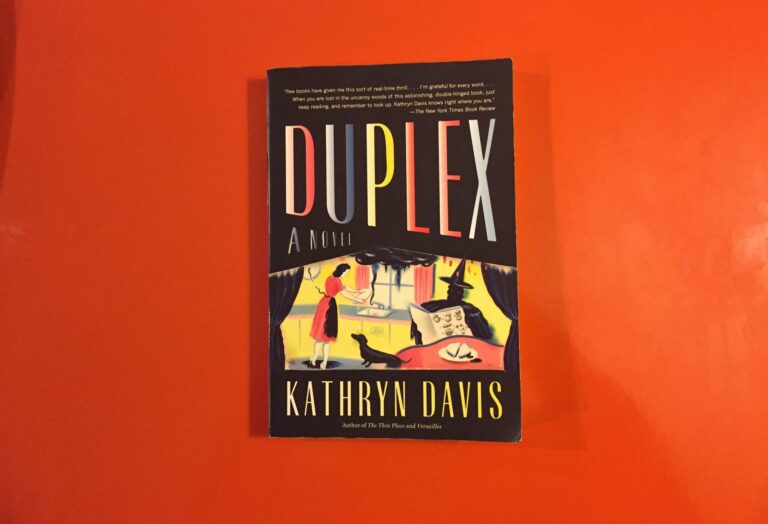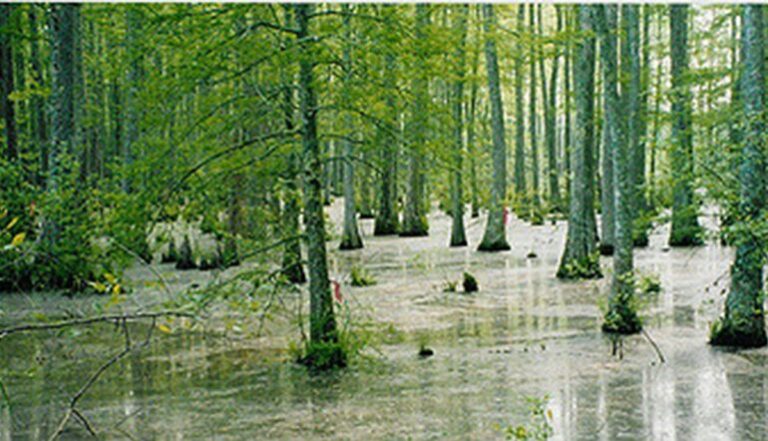Reading Robert Pinsky’s Jersey Breaks: Becoming an American Poet
If you’ve heard about Robert Pinsky in the past fifty years—about something other than his poems “Shirt” or “Samurai Song” or his translation of Dante’s Inferno, about something other than his three-term position as Poet Laureate during which he founded the Favorite Poem Project—you’ve probably heard that he’s from Long Branch, NJ. If you’ve heard about Robert Pinsky in the past twenty years, perhaps you don’t know about Pinsky’s work on Mindwheel: An Electronic Novel, the 1984 text-adventure video game, or perhaps you heard once, quietly laughed, then forgot that in 2007 Pinsky appeared on The Colbert Report as a judge for the “Meta-Free-Phor-All: Shall I Nail Thee to a Summer’s Day” segment featuring Sean Penn. You might have heard about Robert Pinsky because, more than any other poet of his generation, his work and public presence have approached the mainstream, albeit from a far distance. Just as likely, you might not have heard about Robert Pinsky, nor would you care to learn about him. What you might remember, what you might forget: now in his eighties, Pinsky has published a memoir, Jersey Breaks: Becoming an American Poet (2022)—episodes of his Jewish American upbringing in Long Branch and how these memories made inevitable his life in writing.
Jersey Breaks does not turn Pinsky into a model, not a hero of his own life nor of the English language; the memoir does not suggest this life should function as a pedagogical framework for young poets who want to appear on an episode of, say, The Simpsons. If you’ve been paying attention to Pinsky’s poetry and prose before this moment, the memoir recontextualizes something already made clear since his first volume of poems Sadness and Happiness was published in 1975: here is a poet temperamentally reluctant to identify himself with any school or figure, someone prone to joking a bit too often, a poet with habitual contempt for anything that suggests this thing is good because this other thing is bad. The narrative moves between Pinsky’s childhood with Milford and Sylvia Pinsky, his experience discovering poets like Allen Ginsberg and Ezra Pound and W.B. Yeats, studying with Paul Fussell at Rutgers and Yvor Winters at Stanford, life near Boston before Robert Lowell died in 1977, aged sixty, and life in Boston after. The narrative moves insofar as it leads to poetry: that the events of a life in writing seem a bit accidental; that what sustains a life in writing is not fame, not a cartoon version of oneself chatting with Lisa Simpson, but a commitment to language bordering obsession.
On a flight one week after Robert Lowell—a poet who appeared on the cover of TIME—died, Pinsky had a conversation about the older Robert, about the impossibility of a poet’s fame: “‘Famous’ is relative. The pilot was on the borderlands of those who might apply the word to Robert Lowell. ‘Famous’ is also a matter of degree. I have been asked: ‘Grandpa, are you famous?’ ‘Only a little bit.’” Poetry, which lives at these cultural “borderlands,” resists the immediacy of well-packaged information; poetry asks for an idiosyncratic manner of engagement—nothing else exactly like it—one that does not advocate for poets in a culture that prioritizes expediency matched with profit. This is liberating for poets and poetry, and this is also what makes it funny when Colbert says, after introducing Pinsky, “Everybody, by this time next week I want ‘Samurai Song’ to be the number one poem in America. You are going down ‘Stopping by Woods on a Snowing Evening.’ Right Pinsky?” Pinsky jokes: “Frost, you’re toast.” (Pinsky’s memoir describes his experience prepping for The Simpsons, but he excludes any information about his segment on The Colbert Report—perhaps due to a hangover from moderating the heated competition).
There is not a number one poem in America, nor a second or third; the short-term memory of taste does not begin to account for the experience of a poem. In the “Magic Mountain” episode of Jersey Breaks, Pinsky writes of Edgar Guest, perhaps the best-selling American poet and a poet who no one reads anymore, a poet whose name is barely mentioned: “Elizabeth Bishop would not have coveted the fame of Edgar Guest for one second. Like Miłosz, she courted a higher destiny than sales or prizes. The distance between her art and Guest’s popularity is a crucial terrain.” I understand the phrase “higher destiny” and one’s ability to court is a bit tongue-in-cheek: all we have is an unimpeachable commitment to language, the way sentences are arranged on the page, and the effect of those words in that order.
As Pinsky would say: these are the jokes. American culture struggles and often rejects poetry, while American poetry enacts the diversity, the heterogenous assembling, of American culture. He writes that “the uncertain sense of still making up the culture as we go along adds to the thrill of poetry as an American art,” and this thrill is immediately clear in his poetry too. Pinsky’s “Creole,” from his 2016 volume At the Foundling Hospital, is a meditation on how cultural origins and evolutions have shaped one’s sense of history since the birth of the Roman Empire:
The Roman colonizing and mixing, the Imperial processes
Of legal enslaving and freeing, involved not just the inevitableFucking in all senses of the word, but also marriages and births
As developers and barbers, scribes and thugs mingled and coupledWith the native people and peoples. Begetting and trading, they
Had to swap, blend and improvise languages—couples especiallyNeeded to invent French, Spanish, German: and I confess—
Roman, barbarian—I find that Creole work more glorious than God.
The invention of language is not a function of intellect and the expression of ideas but one of necessity: because of “the Imperial process / of legal enslaving and freeing,” couples needed to improvise the Romance languages to communicate. Necessity becomes culture: in the future a person might speak French, Spanish, German, English. Culture becomes, in part, how we imagine ourselves. Pinsky writes it another way in Jersey Breaks: “Milford Pinsky’s unusual first name is a variation on the names of English poets—Milton, Herbert, Sidney—that immigrants in his parents’ generation chose for their children. Early in my life I recognized a live, irrational creature, that was dreadful and fascinating. It was culture itself.” The question of who is allowed to write about what subjects does not go away, while the question’s persistence does not depend only on anxieties of cultural homogeneity but rather on the impossibility to resolve this question of subject with the knowledge that one is talking about poetry, whose formal patterns operate and, in some cases, move readers regardless of subject.
The question of appropriation and subject persists because of what Pinsky calls “historical memory,” which, as described in his 2001 Tanner Lecture at Princeton University collected the following year in Democracy, Culture, and the Voice of Poetry, “tempers both of the imagined extremes of culture, the barely habitable polarities of total undifferentiation and total fragmentation.” How is lineage recorded, how is the process of recording transmitted to the public? What is included, what is excluded? Because poetry is not designed to convince—not a rhetoric outside of ourselves but an experience made upon and through its readers—Pinsky habitually turns inward: back to Milford and Sylvia, back to Long Branch, New Jersey:
Pinsky like “Tex” or “Brooklyn” is a name
Nobody would have if they were still in that same place: those names allSignify someone who’s been away from home a while. Schiavone
Means “a Slav” or “slave.” Milford is a variant on the poets’ names—Milton, Herbert, Sidney—certain immigrants used to give their offspring.
Creole comes from a word meaning to breed or to create, in a place.
These final lines of “Creole” formulate a kind of productive ambivalence to naming: the structural emphasis on both “nobody” and “signify,” on what a name “means” and on the ways it might be arbitrarily gifted, likewise point to the cultural mixing that, in turn, shapes lineage and identity. A name might signify its owner is a Slav, with an etymological connection to the Medieval Sclavus, related to “word” or “speech”; the same name in a different context might signify that a person descends from enslaved people. Just as he writes in Jersey Breaks that “cultural information like the significance of names gets inhaled from no particular source, at no particular moment,” Pinsky continues, pages later, “Names matter to American immigrants, and maybe to Jews in particular. Quite different from skin tone or bank accounts but, like those other social barometers, names inspire scrutiny and anxiety. (I can think immediately of three or four jokes on the subject).”
We don’t need three or four jokes, exactly. “Mixed Chorus,” another poem from At the Foundling Hospital, structurally enacts how cultural diversity assembles itself in real time:
My name is Israel Beilin. My father
Was a Roman slave who gained his freedom.
I was first named Ralph Waldo Ellison butI changed it to the name of one of your cities
Because I was born a Jew in Byelorussia.I sit with Shakespeare and he winces not.
My other name is Flaccus. I wrote an essay
On the theme You Choose Your Ancestors.
Lineage is made by design. Choosing is not a partial act of taste but begins like an accumulation of necessity. By way of its mixing, the poem emphasizes causal relations between the different parts: the name changes because “I was born a Jew in Byelorussia,” because “my father / Was a Roman slave who gained his freedom.” A foundling, after all, is the English word for orphan, a deserted infant then raised in the care of other adults. The full Ralph Ellison quote that Pinsky references, from a 1964 issue of Time magazine, reads: “Some people are your relatives but others are your ancestors, and you choose the ones you want to have as ancestors. You create yourself out of those values.” Even with a stronghold on one’s own sense of identity, of how culture shaped their sense of the present, the poem tells us: everyone is by nature a foundling.
How far does poetry extend into the culture, if at all? In “The Forgetting,” a poem from his 2007 volume Gulf Music, Pinsky collects “memory of so much crap, jumbled with so much that seems to matter,” and through this accumulation surrounds himself with the objects that have shaped his sense of time: “the forgetting I notice most as I get older is really a form of memory.” His mass forgetting takes place in a fantastical poetry event resembling a circus: “Imagine!—a big tent filled with mostly kids, yelling for poetry. In fact / It happened, I was there in New Jersey at the famous poetry show.” The dream-like wish for immediacy—or how the poet remembers the immediacy of culture in his childhood—allows the poem to forget; the distrust and comfort that these words in these lines will do the remembering for him. These disconnected parts make a new kind of memory, one that is not created by occasion but through a discursive assembling. It does not matter whether the poetry circus of his childhood happened—of course, there is no mention of a poetry circus in Jersey Breaks—what matters is the poem’s insistence that it did.


